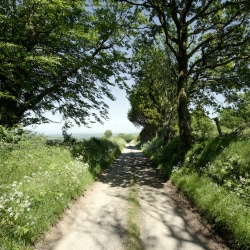Mountain Gorilla Killed

A well known silverback mountain gorilla called Rafiki has been killed in Uganda’s Bwindi Forest Park. Up until recently mountain gorilla’s were classed as critically endangered. Following a significant conservation effort, their numbers are on the rise, however Rafiki’s killing could set that effort back.
Mountain Gorillas
In the 1980’s, following civil war and widespread poaching the numbers of mountain gorilla in Uganda was thought to be below 350. They were critically endangered. Now their numbers exceed 1000, but they are still classified as endangered. There are two main populations, one in Bwindi Forest Park, and the other in the parks of the Virunga Mountain range.
Bwindi Gorilla Group
Since 2008 Rafiki was the leader of one of the Bwindi Park groups. Rafiki was 25 years old when he was killed. He led a group of 17 gorillas and was the only mature male within the group. He is the first mountain gorilla to be killed by humans since 2011.
Rafiki and his group were a favourite among tourists and tourism workers as they regularly foraged beyond the park boundaries so were often seen. Their co-existence with humans is very significant as other mountain gorilla groups are more shy.
Poachers kill Rafiki
Authorities arrested four suspects who have admitted to hunting in the Bwindi Park. They have said they did not intend to kill Rafiki and acted in self defence. Their intention was to hunt for antelope. If found guilty of killing an endangered species, the suspects will be subject to Uganda’s strict anti poaching laws. They may face life imprisonment or a multi million dollar fine.
Setback to Conservation Effort
The national parks that are home to the gorillas are currently closed due to the Coronavirus pandemic. The lack of tourism has taken away the livelihood of many. That has forced some to illegally hunt within the parks, and brought them in close contact with the gorillas. The threat to gorillas is twofold. Firstly, as in the case of Rafiki, gorillas will be subject to poaching or accidentally killed when hunters are looking for other prey. Secondly there is a risk that the Coronavirus is passed on to the gorilla population.
In addition, Rafiki’s group might be taken on by a new silverback but that gorilla could be less relaxed around people. That would further disrupt the local economy as tourism has benefitted from Rafiki’s group being comfortable with people. Or the group might disperse and join other groups, however there is a risk that the infants could be killed by the other groups silverbacks.
If you would like to find out more about protecting mountain gorilla’s please visit our Adopt a Mountain Gorilla page.



